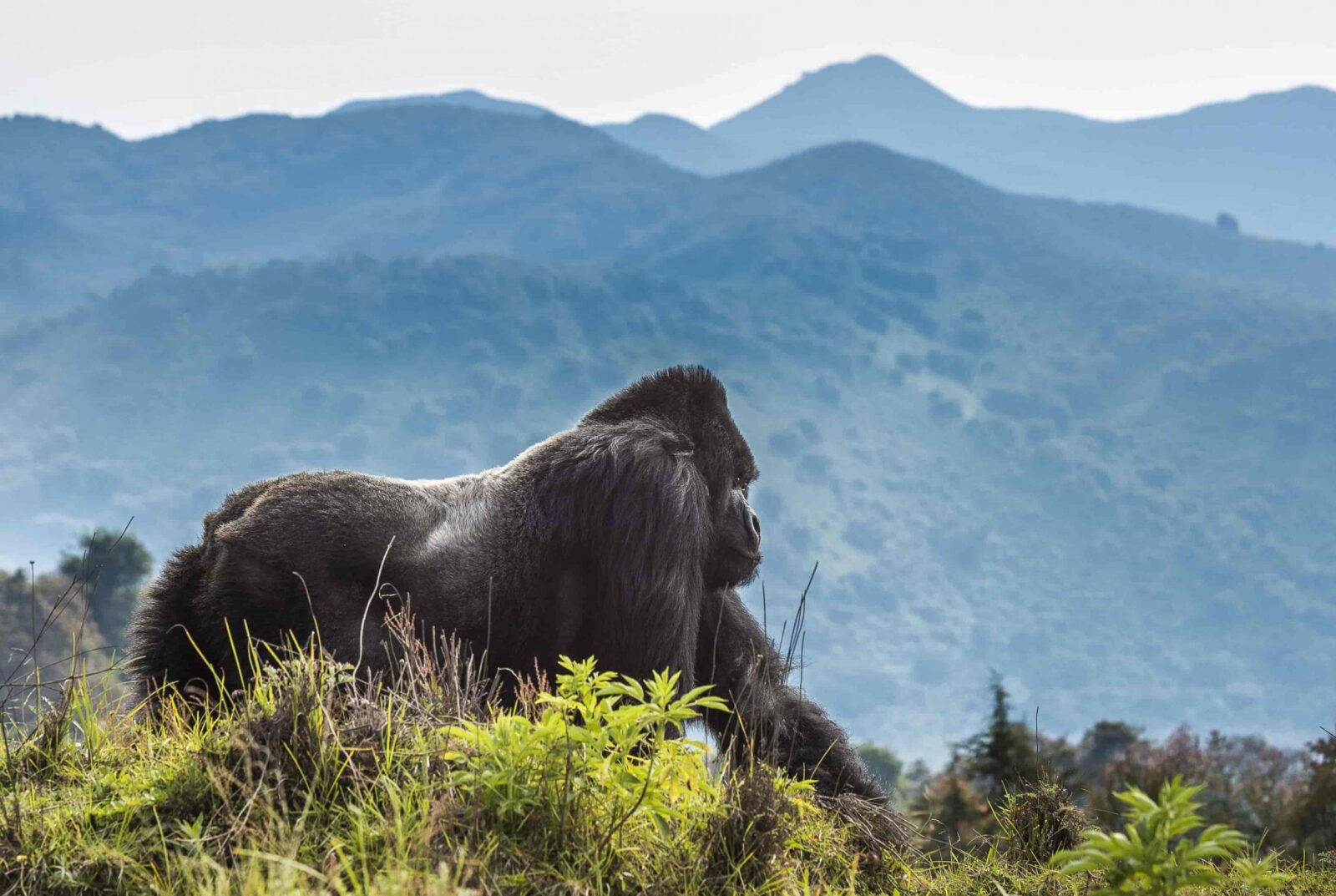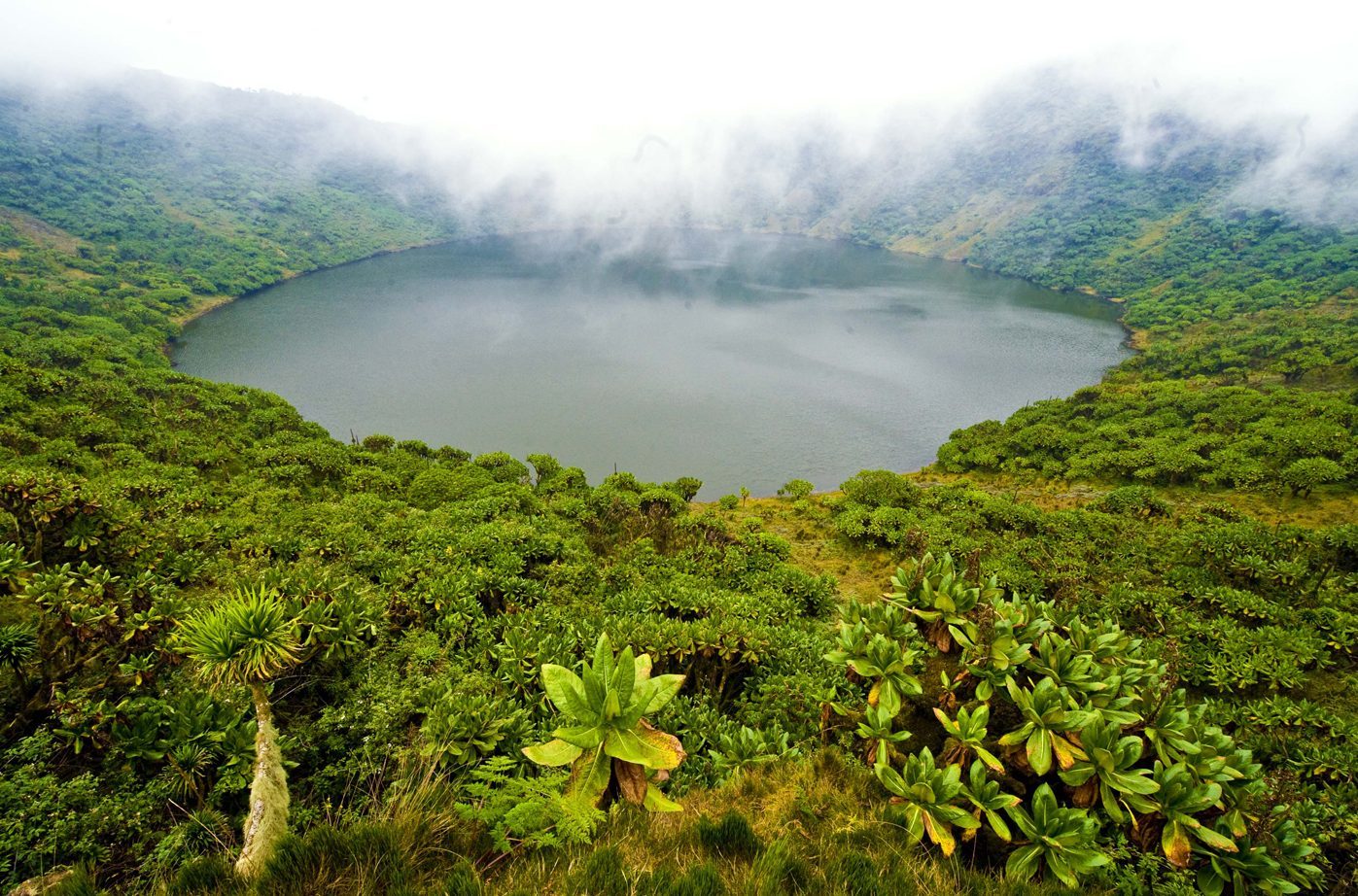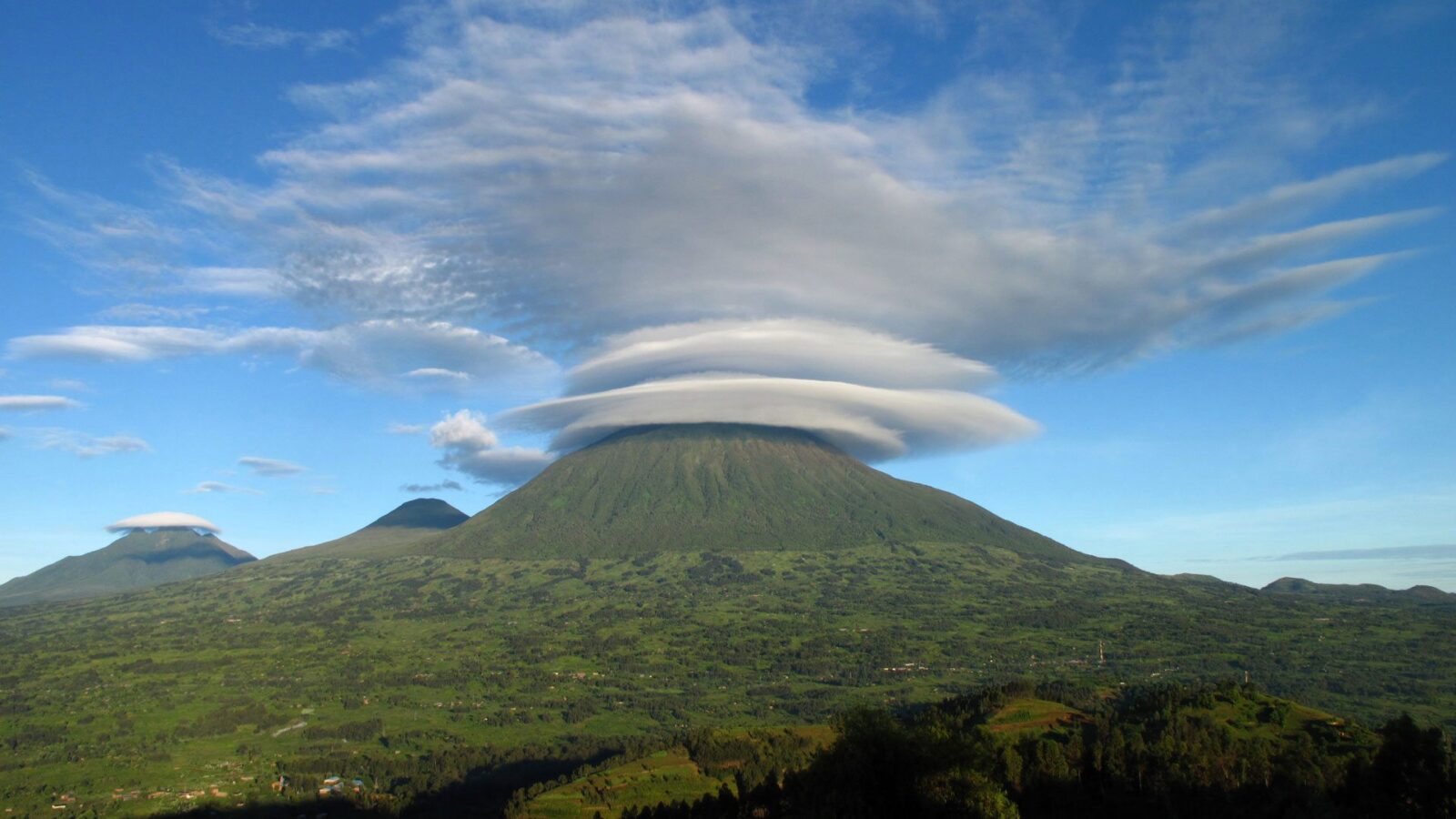
Volcanoes National Park— Guide
Volcanoes National Park
In the far northwestern corner of Rwanda, where misty mountains pierce the clouds and ancient forests whisper in the wind, lies Volcanoes National Park — a sanctuary of extraordinary beauty and significance. Known locally as Parc National des Volcans, this protected area is one of Africa’s most enchanting wilderness destinations and the cornerstone of Rwanda’s gorilla trekking experience. It forms part of the wider Virunga Conservation Area, which stretches across Rwanda, Uganda, and the Democratic Republic of Congo, embracing a chain of volcanoes that rise like sentinels above the rolling hills. Here, every trail, every shadowed forest path, carries echoes of discovery, adventure, and the deep heartbeat of the wild.
A Landscape Born of Fire and Mist
Volcanoes National Park is a realm sculpted by fire and softened by rain. The park covers roughly 160 square kilometers, encompassing five of the eight Virunga volcanoes — Karisimbi, Bisoke, Muhabura, Gahinga, and Sabyinyo. These towering peaks are clothed in lush montane vegetation, bamboo forests, and alpine meadows that change color with the shifting light. Mists rise each morning from the valleys, wrapping the mountains in mystery and allure. The terrain is both rugged and magical, offering some of the most scenic trekking in all of Africa. As you ascend through tangled vines and moss-draped trees, the air becomes cooler, the sounds quieter, and the anticipation stronger — for it is here that you come face to face with the great mountain gorillas.
Home of the Mountain Gorillas
Volcanoes National Park is world-renowned as one of the last strongholds of the endangered mountain gorilla. Around a third of the world’s remaining population lives within these forests, making it a place of pilgrimage for wildlife enthusiasts from across the globe. Gorilla trekking here is a profound and emotional experience — a journey that takes travelers deep into the forest to spend a precious hour in the company of a gorilla family. The moment when your eyes meet those of a silverback, calm yet commanding, is one that transcends words. It is a silent dialogue between two worlds — one wild and ancient, the other modern and searching for reconnection.
Every trek is different, depending on where the gorilla families have moved overnight. The guides and trackers, many of whom are former poachers turned protectors, lead visitors with deep knowledge of the forest and its inhabitants. The trek can be challenging, winding through slippery slopes and dense undergrowth, but the reward is incomparable. To see gorillas in their natural home is to witness the soul of Africa itself — raw, untamed, and profoundly alive.
Beyond the Gorillas
While gorillas are the stars of Volcanoes National Park, the forest teems with other wonders. Golden monkeys, with their bright fur and playful nature, leap through the bamboo groves, adding color and energy to the quiet greenery. The park is also home to forest elephants, buffaloes, bushbucks, and a remarkable variety of bird species. For hikers, the volcanoes themselves offer incredible adventures. Mount Bisoke, with its stunning crater lake, provides a challenging yet rewarding climb, while the ascent of Mount Karisimbi — Rwanda’s highest peak at 4,507 meters — offers a two-day expedition through ever-changing vegetation zones.
Another deeply moving experience within the park is the Dian Fossey Tomb Trail, which leads to the final resting place of the legendary primatologist Dian Fossey. Her groundbreaking research and tireless efforts to protect the mountain gorillas in the 1960s and 70s brought the species back from the brink of extinction and inspired global conservation movements. Visiting her grave and the remnants of her Karisoke Research Center is both humbling and inspiring, reminding travelers that true guardianship of nature often comes from sacrifice and devotion.
Conservation and Community
Volcanoes National Park is not only a wildlife sanctuary but also a model of successful conservation. The park’s survival depends on the delicate balance between protecting nature and empowering local communities. A significant portion of the revenue from gorilla permits is channeled into nearby villages to support education, healthcare, and sustainable projects. This inclusive approach has turned former poachers into conservation allies and made tourism a source of pride rather than conflict. The people who live at the park’s edge are now its stewards, ensuring that the story of the mountain gorilla continues for generations to come.
The Spirit of Volcanoes
To visit Volcanoes National Park is to enter a world where time seems to slow, where the forest breathes with ancient rhythm, and where every step feels like a journey into the heart of creation. The air is filled with the scent of wet earth, the songs of birds, and the distant rumble of volcanoes that shaped this land long before humans arrived. The experience is not simply about seeing wildlife — it is about feeling a connection to something greater, something elemental and enduring. Rwanda has built its identity around this park, and rightly so, for within its mist-shrouded peaks lies a story of hope, resilience, and the power of coexistence between humanity and nature.



